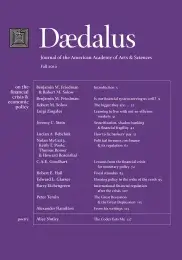From the writings of Alexander Hamilton
In this first selection, from April 30, 1781, Hamilton writes to Robert Morris, a wealthy Pennsylvania merchant and an influential statesman who developed a plan for the first incorporated national bank, the Bank of North America. Hamilton, only twenty-four at the time, makes one of the earliest statements by anyone that banks and credit can strengthen a state and foster economic growth. These goals would become two of Hamilton’s main objectives as a statesman.
The tendency of a national bank is to increase public and private credit. The former gives power to the state for the protection of its rights and interests, and the latter facilitates and extends the operations of commerce among individuals. Industry is increased, commodities are multiplied, agriculture and manufactures flourish, and herein consist the true wealth and prosperity of a state.
Most commercial nations have found it necessary to institute banks and they have proved to be the happiest engines that ever were invented for advancing trade. Venice, Genoa, Hamburg, Holland and England are examples of their utility. They owe their riches, commerce and the figure they have made at different periods in a great degree to this source. Great Britain is indebted for the immense efforts she has been able to make in so many illustrious and successful wars essentially to that vast fabric of credit raised on this foundation. ’Tis by this alone she now menaces our independence.
She has indeed abused the advantage and now stands on a precipice. Her example should both persuade and warn us. ’Tis in republics where banks are most easily established and supported and where they are least liable to abuse. Our situation will not expose us to frequent wars, and the public will have no temptation to overstrain its credit.
The second selection is from Hamilton’s December 1790 “Report on a National Bank.” Now Treasury Secretary, Hamilton acknowledges that banks and borrowers can make mistakes, but that they are, on balance, beneficial.
That Banks furnish temptations to overtrading . . . must mean that by affording additional aids to mercantile enterprise, they induce the merchant sometimes to adventure beyond the prudent and salutary point. But the very statement of the thing shows that the subject of the charge is an occasional ill, incident to a general good.
[. . . ]
If the abuses of a beneficial thing are to determine its condemnation, there is scarcely a source of public prosperity which will not be speedily closed. In every case, the evil is to be compared with the good; and in the present case such a comparison will issue in this, that the new and increased energies derived to commercial enterprise from the aid of banks are a source of general profit and advantage, which greatly outweigh the partial ills of the overtrading of a few individuals at particular times, or of numbers in particular conjunctures.
Selections excerpted from “The Papers of Alexander Hamilton,” vol. I–XXVII, ed. Harold C. Syrett (New York: Columbia University Press, 1961–1988), vol. II, 618 and vol. VII, 314–315, respectively. Special thanks to Richard Sylla, of New York University, for his assistance in choosing these selections and preparing the notes to accompany them.
